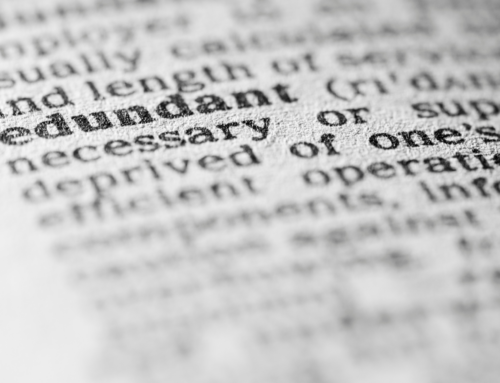Are you ready for the annualised salary changes that are coming into effect on 1st March 2020? These modern award amendments are among the biggest changes to impact HR in many years. It’s pretty complicated and given there is a lot of ambiguous information out there, we have been working hard to establish what exactly this means for you and how we can help you successfully navigate these changes within your business.
So, here’s what you need to know about the annualised salary changes:
On 20 February 2018, the Fair Work Commission (FWC) issued a decision regarding annualised wage arrangements, one of a number of “common issues” being dealt with as part of the 4 yearly review of modern awards. In the 2018 decision the FWC made a number of determinations that will affect many Australian employers. These changes initially impact 22 Modern Awards (for a list of the affected awards please see below).
Most employers who pay annualised salaries do so to reduce the administrative burden of having to calculate and record overtime and factor in a ‘reasonable amount of overtime’ into the salary arrangement. In theory, these employees would be better off under these annualised salary arrangements than under their relevant modern award. The problem that has come to light is that some employers have used this as a loophole to reduce their labour costs, expect more than a ‘reasonable amount of overtime’ without been required to prove that their annualised salary arrangements are better off for the employee than they would be under their relevant modern award. Just a few of the high-profile cases are Woolworths, Michael Hill Jewellers, Westfarmers, Qantas, Commonwealth Bank and the Super Retail Group. There are also the likes of franchisees at convenience store chain 7-Eleven; the Made Establishment empire (fronted by George Calombaris), Heston Blumenthal and now Coles.
From 1st March 2020, 22 awards will change the way that annualised salary arrangements are managed and reported on to ensure employees are financially better off under these arrangements than they would be under the awards. The following are the key changes employers will need to make:
- Record in an annualised wage agreement/arrangement the provisions of the award that are met by the annualised salary, and in some cases, record the method by which the annualised wage has been calculated.
- Set “outer limits” of overtime for employees. If the employees work over the “outer limits” in a pay cycle, then they need to be paid penalty rates in line with their relevant award.
- Keep records of time worked and unpaid breaks taken by employees on annualised salary arrangements
- Implement a process whereby employees sign off on the time they have worked as being accurate each pay cycle
- Conduct annual reconciliations and when employment terminates to ascertain if employees have been no worse off than what they would have been under their relevant award (Essentially an annual BOOT test)
*There are 3 model clauses, all with slight differences that will apply to the affected Awards (detailed below).
What are the implications of the annualised salary changes?
The implications for most organisations are quite arduous if you are covered by one of the affected modern awards.
Non-compliance could lead to expensive underpayment claims, reputational damage (and nobody wants to become a high-profile case like the ones mentioned above) and potential penalties for breaching the modern wards.
What do I need to do to comply with the changes to annualised salary arrangements?
The first step for all employers is to work out if you have any employees affected. That means ensuring you understand the correct award coverage for your business.
The next step would be to work out what the “outer limits” of overtime would be under that salary arrangement. It is no longer acceptable to simply pay someone above the award rate and expect them to work unlimited without paid overtime.
If you currently have a system in place to record time worked and breaks taken, ensure you utilise this system for your annualised salaried employees. If you don’t have a system in place, then you will need to implement a way to record these hours. You will also need to check your payroll system’s capacity to run two calculations; what the employee would have received under the relevant Modern Award and what they actually receive.
Each employee on an annualised salary arrangement will need an agreement/arrangement drafted which outlines their ‘outer limits’ and details the assumptions made and the provisions of the award that have been met by the annualised salary arrangement.
The next step will be to implement a process whereby hours worked are reconciled each pay cycle to determine if any overtime penalties are owed, and any shortfalls are paid within 14 days.
An alternative option to consider if you have employees that are on annualised salary arrangements (who are paid at or just above award), is to pay them an hourly rate. This will reduce the administrative burden associated with the changes to annualised salary arrangements.
Which Awards are affected by the changes to annualised salary arrangements?
Clause 1 Category
This category includes Modern Awards which cover employees who work relatively stable hours.
The annualised salary will not require an employee’s agreement to the introduction of an annualised salary arrangement.
The Modern Awards affected are:
- Banking, Finance and Insurance Award 2010
- Clerks – Private Sector Award 2010
- Contract Call Centres Award 2010
- Hydrocarbons Industry (Upstream) Award 2010
- Legal Services Award 2010
- Mining Industry Award 2010
- Oil Refining and Manufacturing Award 2010 (clerical employees only)
- Salt Industry Award 2010
- Telecommunications Services Award 2010
- Water Industry Award 2010
- Wool Storage, Sampling and Testing Award 2010
Clause 2 Category
This category includes modern awards which cover employees who work highly variable hours and/or significant ordinary hours of work which attract a penalty rate.
The annualised salary under these modern awards will require employers and employees to agree on the application of an annualised salary arrangement.
The Modern Awards affected are:
- Broadcasting and Recorded Entertainment Award 2010
- Local Government Industry Award 2010
- Manufacturing and Associated Industries and Occupations Award 2010
- Oil Refining and Manufacturing Award 2010 (non-clerical employees)
- Pharmacy Industry Award 2010
- Rail Industry Award 2010
- Horticulture Award
- Pastoral Award 2010
- Health Professionals Award 2010
Clause 3 Category
This category includes modern awards which currently require that the annualised salary be a specified percentage above the minimum weekly wage in the modern award.
The annualised salary term under these modern awards will require employers and employees to agree on the application of an annualised salary arrangement. The clause will only apply to non-managerial staff.
The Modern Awards affected are:
- Marine Towage Award 2010
- Restaurant Industry Award 2010
- Hospitality Industry (General) Award 2010
As with any significant change to the industrial instruments, there is a lot of information to digest. For affected organisation’s it means more work for to ensure their compliance.
The tides are changing and more and more employers are getting caught out underpaying their staff. We highly recommend that in order to be prepared and ensure you don’t get caught out, you should start implementing these changes as soon as possible. For instance, if for you are using a Bundy clock in clock out system for hourly or wages employees, you should start using it for salaried employees too.
If you need some help navigating how these changes impact your business we can assist to:
- Help you work out what modern awards your employees are covered by (if you don’t already know).
- Which classifications your employees fall under within your relevant award
- How to calculate the ‘outer limits’ of overtime
- Drafting agreements to satisfy the new award provisions and record-keeping requirements
Over the coming days, we will be providing some more information and some package options that can assist you with all of the above. If you would like to learn more please register here => LEARN MORE.
Written by HR Gurus Managing Partner, Jessy Warn.
For more information on the rulings see below.
4 yearly review of modern awards – Annualised Wage Arrangements [2018] FWCFB 154 (20 February 2018)
4 yearly review of modern awards – Annualised Wage Arrangements [2019] FWCFB 1289 (27 February 2019)
For a full listing of each Modern Award variation determination see below.
Disclaimer
The information in this publication is of a general nature and is not intended to address the circumstances of any particular individual or entity. Although we do endeavour to provide accurate and timely information, we do not guarantee that the information in this publication is accurate at the date it is received or that it will continue to be accurate in the future.
Continue Reading
Get a personal consultation.
Call us today at 1300 959 560.
Here in HR Gurus. We make HR simple because it should be.





